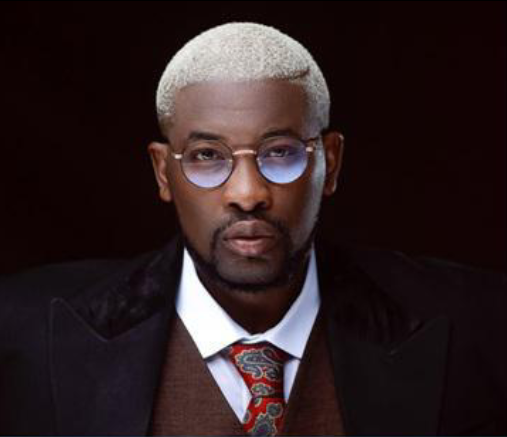
Journalism or Jousting? OAP Dotun Sparks Debate Over Rufai Oseni and Seun Okinbaloye’s Interview Styles

Nigerian On-Air Personality, Dotun, has sparked an intense online debate after publicly weighing in on the interviewing styles of two of Nigeria’s most prominent broadcast journalists—Arise TV’s Rufai Oseni and Channels Television’s Seun Okinbaloye. The media personality’s commentary, which surfaced on X (formerly Twitter), quickly became a hot topic, drawing mixed reactions from viewers who have followed the two journalists’ fiery on-screen exchanges with politicians.
Dotun, known for his bold and unfiltered takes, didn’t mince words as he compared both men’s approaches to interviewing public officials. According to him, while both Rufai and Seun are respected for their intellect and tenacity, their methods reflect two very different schools of journalistic thought—one that prioritizes confrontation and accountability, and another that values composure and controlled engagement. The OAP’s observation struck a chord across social media, as Nigerians remain sharply divided over whether journalists should maintain polite restraint or adopt a more aggressive stance in holding leaders accountable.
Rufai Oseni, one of Arise News’ most recognizable anchors, has built a reputation for his firm, sometimes fiery, questioning style. His interviews often trend online for his refusal to let politicians dodge tough questions or resort to vague answers. Critics, however, argue that his tone can at times come off as combative or condescending, turning interviews into verbal battles rather than professional exchanges. But to his defenders, Rufai embodies the type of fearless journalism Nigeria desperately needs—one that refuses to cower in the face of political power or media manipulation.
On the other hand, Seun Okinbaloye, host of Channels TV’s popular program Politics Today, is known for his calm, structured, and analytical delivery. His interviews are often described as surgical—meticulous, precise, and layered with facts. Yet, even his detractors claim that Seun sometimes appears too accommodating or “soft” on guests who evade questions, allowing them to spin narratives unchallenged. Despite this, many viewers respect his balance and consistency, praising him for maintaining professionalism while still driving conversations that matter.
Dotun’s post dissected these differences with clarity, suggesting that both approaches have their strengths and weaknesses. “Rufai gives us the fire we need, but sometimes it burns too hot,” he wrote in part. “Seun gives us structure and calm, but sometimes we need more pressure.” His remarks immediately went viral, sparking hundreds of responses from journalists, political commentators, and everyday Nigerians who have long followed both men’s work. Some users applauded Dotun for expressing what they’ve always thought but never said publicly. Others accused him of trying to stir unnecessary tension between two professionals who serve the same national purpose—holding the powerful accountable.
The conversation reignited a broader debate about what journalism should look like in modern Nigeria. Should journalists, in a country with a history of corruption and political impunity, adopt a more aggressive and confrontational tone to demand honesty from politicians? Or should they prioritize calm objectivity, even if it means letting certain evasive responses slide in the name of professionalism? This tension between advocacy and neutrality has been at the center of Nigerian journalism for years, and Dotun’s comment seems to have reopened the wound.
Media experts who joined the discussion online offered different perspectives. Some argued that Rufai’s fiery style mirrors global standards seen in networks like CNN and BBC, where anchors like Christiane Amanpour and Stephen Sackur are famous for their hard-hitting interviews. To them, Rufai represents the evolution of Nigerian journalism into an era where journalists are not intimidated by status or political affiliations. Others countered that journalism must remain rooted in civility, facts, and composure, warning that overly aggressive interviewing could alienate viewers and discourage guests from appearing on such platforms altogether.
Interestingly, both journalists have, in recent times, become symbolic of two opposing expectations from the Nigerian public. Rufai’s passionate delivery resonates with young Nigerians who feel disillusioned by political dishonesty and want journalists to act as watchdogs who confront deceit head-on. Seun, meanwhile, appeals to viewers who prefer a more traditional and measured approach—one that prioritizes facts and calm reasoning over emotional engagement. The two, in their different ways, have shaped how millions of Nigerians perceive political interviews and accountability journalism.
Dotun’s commentary also touched on the pressure journalists face in balancing truth with diplomacy. “The audience wants you to be fearless,” he wrote, “but they also want you to be polite. It’s a thin line, and once you cross it, you’re either called rude or too soft.” His reflection resonated with many media practitioners who noted that Nigerian journalists often walk a dangerous tightrope—risking backlash, censorship, or political attacks depending on how they approach interviews with powerful figures.
As reactions continued to pour in, several Nigerians commended Dotun for initiating an important conversation about journalistic ethics and evolution. A few social media users even suggested that both Rufai and Seun represent two sides of the same coin—each vital for a balanced media ecosystem. “We need Rufai to shake the table,” one user wrote, “and we need Seun to put the pieces back together afterward.” Others, however, felt Dotun’s comments could fuel unnecessary rivalry in an already divided media landscape.
Neither Rufai Oseni nor Seun Okinbaloye has publicly responded to Dotun’s remarks, but supporters of both camps have taken the opportunity to highlight memorable moments from their interviews. Clips of Rufai’s fiery exchanges with politicians like Festus Keyamo and Dino Melaye resurfaced online, alongside Seun’s calm but firm questioning of government officials on Politics Today. The viral comparisons only further emphasized the stylistic contrasts between both men—and the fact that Nigerians are paying closer attention to journalism than ever before.
What Dotun may have unintentionally achieved with his comments is a renewed appreciation for Nigeria’s evolving broadcast media scene. The country’s journalists are no longer mere conveyors of government statements; they are now active participants in shaping public accountability. Whether through Rufai’s assertive questioning or Seun’s calculated precision, Nigerian journalism continues to grow more confident, fearless, and globally recognized.
In the end, Dotun’s observation serves as more than just a critique—it’s a reflection of a changing media landscape where journalists must constantly adapt to the demands of an increasingly aware and vocal audience. His words remind both practitioners and viewers that there is no single right way to practice journalism; the real goal is to speak truth to power while maintaining integrity and professionalism.
As social media continues to debate which style best serves the nation’s democracy, one thing is clear: Nigeria’s journalists are no longer sitting quietly on the sidelines. Whether through fire or finesse, the message is the same—accountability is non-negotiable. And in that sense, both Rufai and Seun, in their own unique ways, are helping shape the future of Nigerian journalism—one interview at a time


